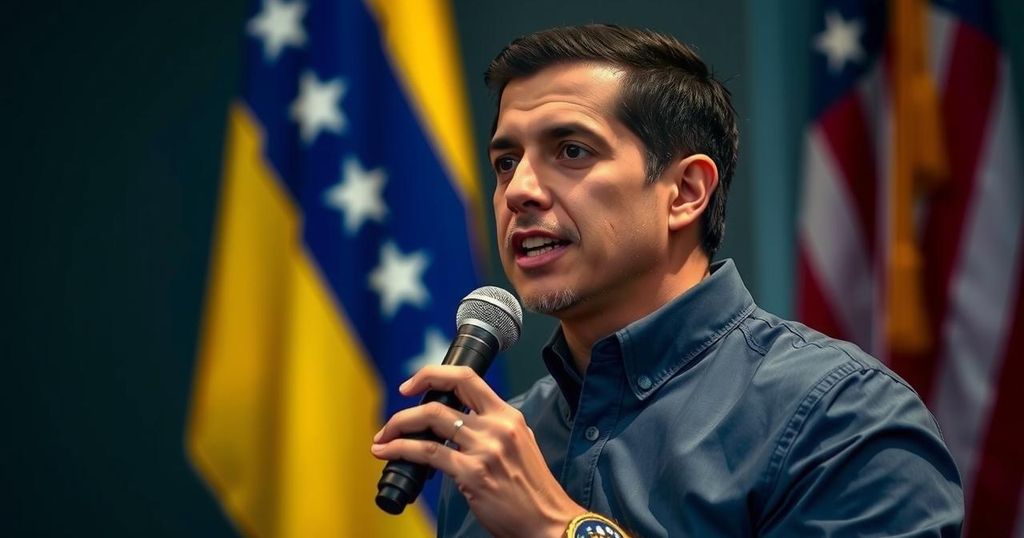U.S. Recognizes Edmundo Gonzalez as Venezuela’s President-Elect Amid Election Controversy
The U.S. has acknowledged Edmundo Gonzalez as Venezuela’s president-elect, following allegations of electoral fraud against President Nicolas Maduro in the July elections. Secretary of State Antony Blinken stated that the Venezuelan voters have made their choice clear. This recognition reflects a broader skepticism towards Maduro’s claims of victory and highlights increasing diplomatic isolation for Venezuela.
The United States has officially recognized Edmundo Gonzalez, an opposition leader in Venezuela, as the country’s legitimate president-elect following the contentious July elections. The announcement comes amid widespread skepticism regarding President Nicolas Maduro’s declared victory, which was met with accusations of electoral fraud from multiple sectors, including opposition parties and independent observers. Despite pre-election polls indicating a potential defeat for Maduro, the Venezuelan government has not disclosed vital data that could validate their claims of electoral success. Secretary of State Antony Blinken asserted in a recent social media statement that the Venezuelan populace clearly expressed their preference for Gonzalez on July 28, stating, “Democracy demands respect for the will of the voters.” This statement reflects the growing frustration among U.S. officials and various Latin American nations regarding the Maduro administration’s actions, including a post-election crackdown on dissent and opposition candidates. The declaration of Gonzalez as president-elect raises questions about the future interactions between the U.S. and Venezuela, particularly given that Gonzalez is currently in Spain but has announced intentions to return to Venezuela on January 10. Previous indications from the Biden administration acknowledged that the opposition had garnered significant support in the elections but hesitated to formally endorse Gonzalez in hopes of fostering a potential diplomatic resolution. The situation in Venezuela highlights its increasing diplomatic isolation, with regional figures, including Colombian President Gustavo Petro and Brazilian President Luiz Inacio Lula da Silva, expressing deep concern over the perceived undemocratic nature of the elections. In light of these developments, the political landscape in Venezuela remains uncertain as international actors continue to reassess their positions during this critical period of transition.
The recognition of Edmundo Gonzalez as president-elect by the United States marks a significant development in Venezuelan politics, particularly following a turbulent electoral process characterized by alleged irregularities and mounting tensions. The conflict arises from accusations against President Nicolas Maduro of falsifying electoral results, leading to a divided political landscape. The international community, especially adjacent Latin American countries, has increasingly refrained from supporting Maduro, reflecting a shift toward endorsing opposition leadership amidst calls for democratic restoration in Venezuela. This situation stems from a larger context of economic and social crises exacerbating the political turmoil in the country, with calls for greater accountability and adherence to democratic principles.
In conclusion, the U.S. recognition of Edmundo Gonzalez as president-elect signifies a pivotal moment in Venezuela’s political climate, indicating growing international support for opposition leadership amidst scrutiny of Maduro’s government. The prevailing sentiment among regional leaders underscores a collective demand for democratic integrity and accountability in governance. As Gonzalez plans his return to Venezuela, the reactions from both the Venezuelan government and the international community will be critical in shaping the nation’s political trajectory moving forward.
Original Source: www.aljazeera.com




Post Comment